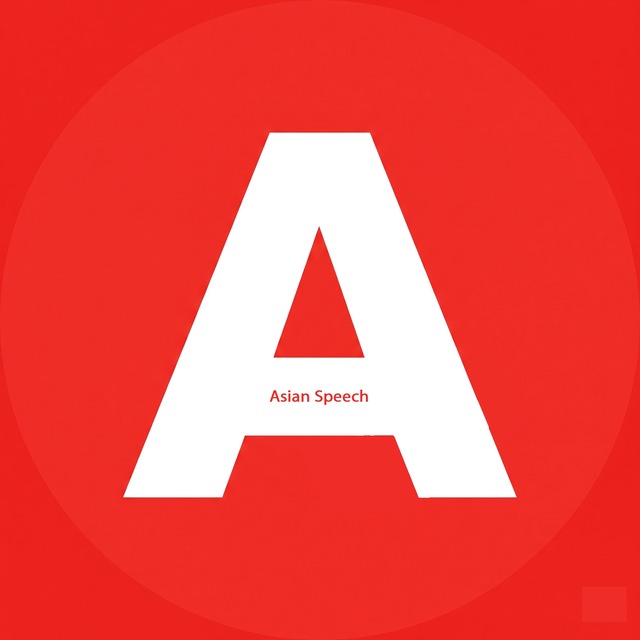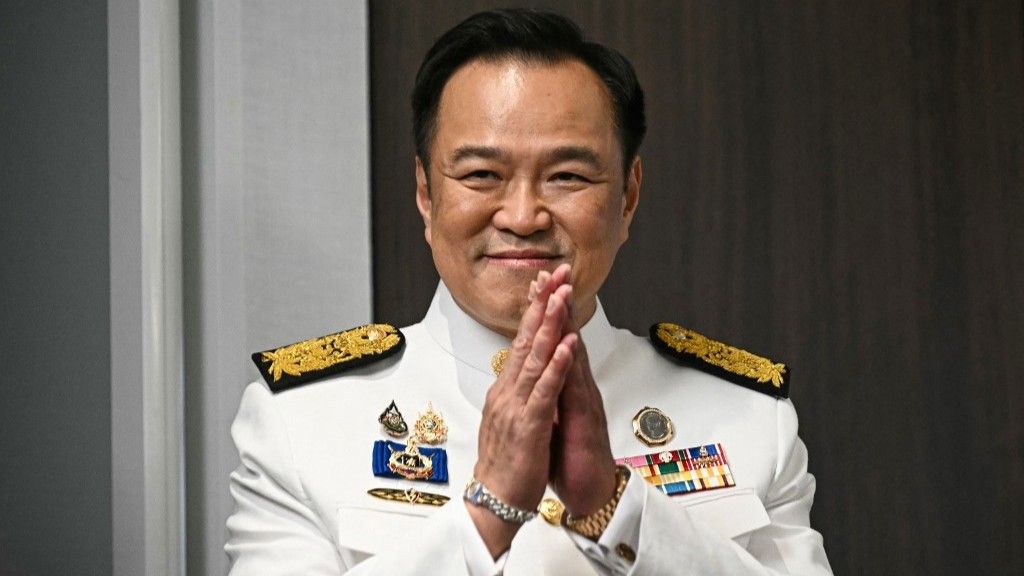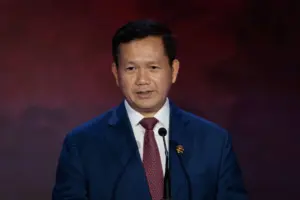Thailand’s game at the border is not strength, it’s survival
Anutin isn’t just Prime Minister, he made himself Interior Minister too. That’s not two jobs, that’s consolidation.
Every order that matters now runs through him personally. Crowd control. Provincial governors. Border barriers. All of it.
And because his Cabinet is a minority one, he is governing on borrowed time. Minority Cabinets don’t thrive, they cling. Which means every external move has to project toughness, because weakness at the border is weakness at home. Firmness isn’t policy anymore. It’s oxygen.
Now look at how they frame discipline. Tear gas and rubber bullets are boring. This time they paraded the Long Range Acoustic Device. The sonic cannon. And they made sure the world noticed.
Why? Because decibels sound cleaner than bullets in international forums. It lets them say they escalated proportionally, lawfully, rationally. But the truth is simpler. You don’t bring speakers to a fight unless you’re terrified of blood on camera. Theatrics. Noise. Pain rebranded as discipline.
The same playbook shows up in how they handle dirt. Trenches measured to the meter. Buildings mapped down to the centimeter. Commanders standing with rulers and clipboards.
This isn’t military, it’s legal theatre. Converting mud into evidence and evidence into leverage. Every figure they publish is less about where a wall stands and more about building a paper shield for international committees.
And here’s the sting: when you have to measure sovereignty with a ruler, it means your people aren’t willing to hold it with their bodies. Lawfare by millimeter is the game you play when you’ve already lost the moral fight.
Watch who does the talking. Not just Bangkok. They push provincial governors to the front. Sa Kaeo’s governor called Cambodian protesters illegal entrants and blamed them for damage to Thai barriers. That shifts the story. It is no longer Thailand versus Cambodia. It is Thailand versus criminals.
It multiplies the mouths and spreads the message. But the truth is, this isn’t decentralization. It’s scapegoating.
Bangkok wants the line to sound local while they keep their hands clean.
The MFA routine is even tighter. Always lead with Thai law. Always say the offense happened on Thai soil. Always say the barricades were defensive.
Always mention warnings. Only after the legal anchor is set do they lift the language to ASEAN and the UN. That sequence is deliberate. Lead with legality. Follow with diplomacy.
Repeat it enough times and every headline writes itself: Thailand lawful, Cambodia reckless. Reality doesn’t matter once you own the narrative script.
And then there’s the F16 strike. July 24. One strike. Not two, not three. Just one. That wasn’t a campaign, it was punctuation. A red line written in jet fuel. And then silence.
If Thailand had the muscle, they would have used it again. The fact they didn’t tells the story. It wasn’t deterrence. It was theatre. One cheap headline to remind Cambodia of the sky. The world saw the noise, but also saw the restraint wasn’t strategy. It was necessity.
The evacuations fit the same pattern. Within hours, Thailand published big numbers. Tens of thousands of evacuees. Hundreds of shelters. Images of efficiency. That looks like competence at first glance, but underneath it is confession.
You don’t get applause for moving your people out of harm’s way when you’re the one who put them there in the first place.
A strong state prevents danger. A weak one evacuates and then calls it victory. Thailand packaged panic as protection, and ASEAN is supposed to clap.
Even landmines have been folded into the script. New injuries, blamed on Cambodia. Suddenly the border isn’t about territory, it’s about humanitarian law.
Thailand wants the world to see Cambodia as violating the Ottawa Convention. And yes, that argument resonates in Western capitals.
But here’s the hypocrisy: Thailand has its own mine legacy. You don’t point at craters when your own record is full of scars. That’s not moral high ground. That’s courtroom hypocrisy.
And then the RBC and GBC clauses. Every time Thailand cites them, it isn’t formality. It’s a pre-justification. When they dismantle a trench or remove a building, when they consider a limited strike, they will say it is treaty enforcement. Not aggression, enforcement. That’s the trick.
Wrap every hammer swing in paperwork and call it a gavel. But if you need agreements to excuse your muscle, you’re not strong. You’re just hiding behind contracts.
All of this is powered by a political clock that is already burning. A minority Cabinet doesn’t have years to maneuver. It doesn’t even have months of comfort. It has weeks to prove it can look tough, sound tough, act tough.
Every hesitation costs them. Every concession bleeds them. So Bangkok’s leadership is negotiating not from strength but from fear. They stand on the edge of a blade and call it stability. But everyone can see the truth. Restraint is not strategy for them. It’s suicide.
Thailand isn’t defending sovereignty. It’s defending Anutin’s seat. And every centimeter they measure is another inch of weakness they can’t hide.
Source: Midnight





